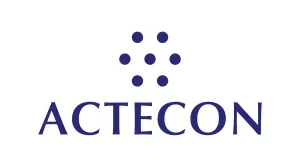Introduction
The Turkish Competition Authority ("TCA") has recently adopted a noteworthy decision in relation to supply of pharmaceuticals from abroad. This decision is important not only because it relates to pharmaceuticals market and thus the public health, but also, it reverses the well-established exclusive role of the sector association in the procurement of pharmaceuticals from abroad. It additionally demonstrates an increased scrutiny from the TCA's side to the competition issues in the general pharmaceuticals market.
Background info
The TCA initiated in July 2015 an investigation against the Turkish Pharmacists' Association ("TPA") and the Turkish Pharmacists' Association Commercial Entity ("TPACE") upon a complaint it received in relation to alleged anti-competitive behaviours in the market for pharmaceutical supply. The main concern of the complaint was that the practices of the TPACE in respect of pharmaceutical supplies from abroad constituted an abuse, especially taking into consideration that those pharmaceuticals could only be made available in the Turkish market by way of import.
TCA's findings
Following the investigation, which approximately took one and a half years, the TCA concluded that;
- TPACE holds a dominant position in the pharmaceuticals procurement from abroad, and
- It has abused its dominant position by way of concluding agreements with foreign pharmaceuticals suppliers, which included exclusivity clauses.
On this basis, with its decision numbered 16-42/699-313 and dated 6 December 2016 ("Decision"), the TCA imposed a fine on TPACE, in the amount of TRY 18,062,307.32 (approximately EURO 5 million). In addition, the TCA also decided to deliver a recommendation to the Ministry of Health and Social Security Institution of Turkey, with a view to opening the market in question to competition. The details of the evaluations and findings will be available upon the publication of the reasoned decision within upcoming months.
Concluding remarks
The Decision is noteworthy in several aspects. First, sector associations have been historically investigated on grounds of cartelistic behaviour; but this time, the sector association's involvement meant that this was not only a cartel issue, but also one of dominance. Accordingly, this is a strong message for all sector associations to pay attention to dominance issues as well. Secondly, the Decision marks the end of a well-established exclusivity practice and represents an example of competition advocacy policy. Although promotion of competition is not a new concept for the TCA, it has not always been easy for the competition authorities to adopt decisions with far-reaching effects in regulated markets, such as pharmaceuticals. Finally yet importantly, the Decision promotes a more competitive market structure in the pharmaceuticals market, which, undoubtedly, will enhance public health.
The content of this article is intended to provide a general guide to the subject matter. Specialist advice should be sought about your specific circumstances.


